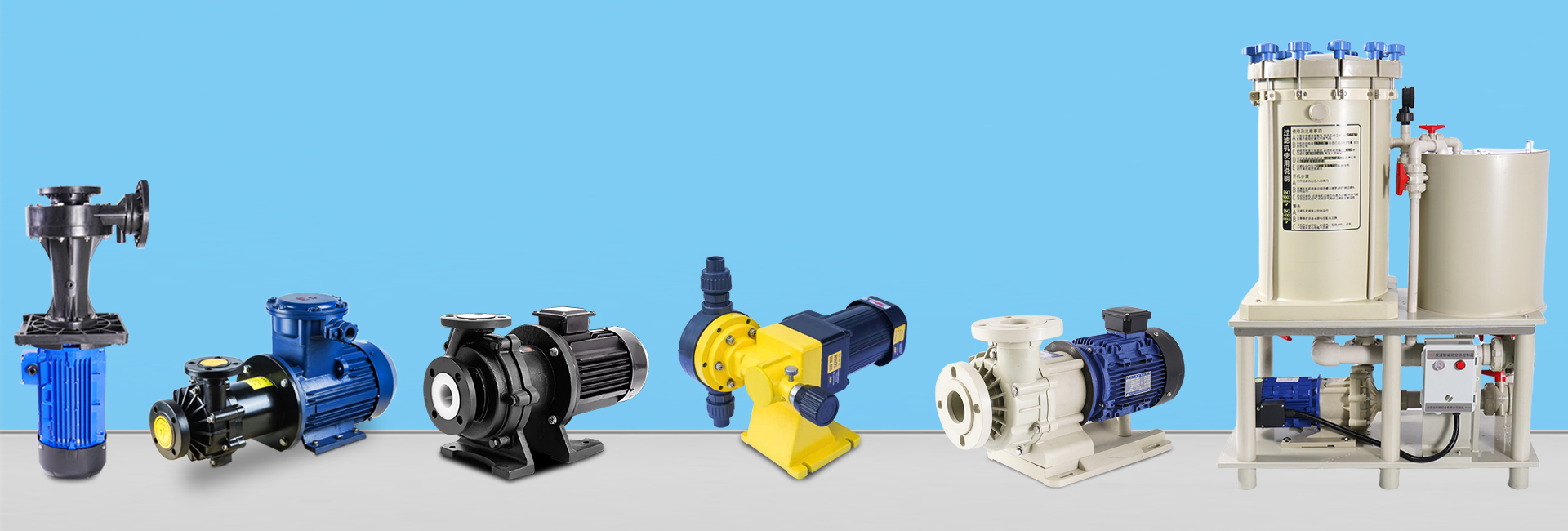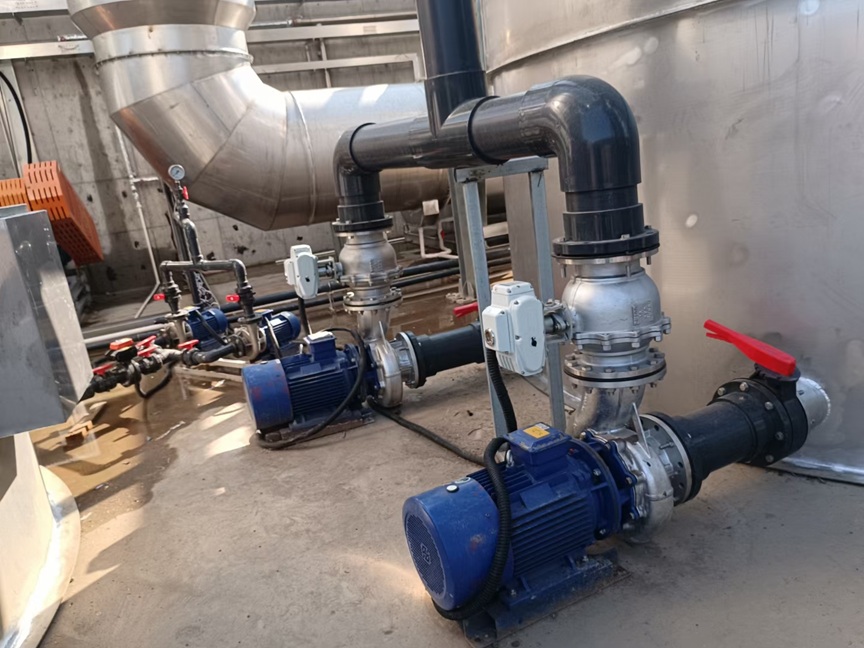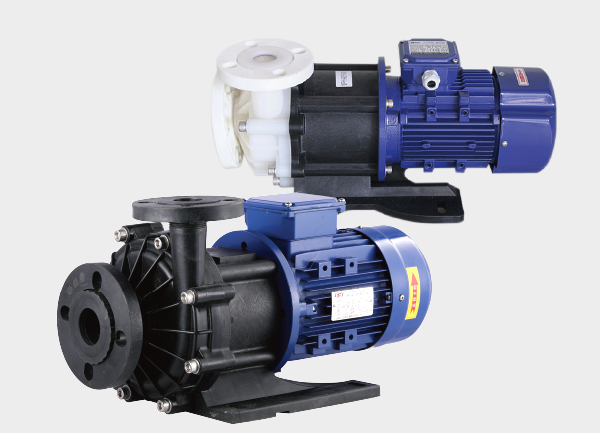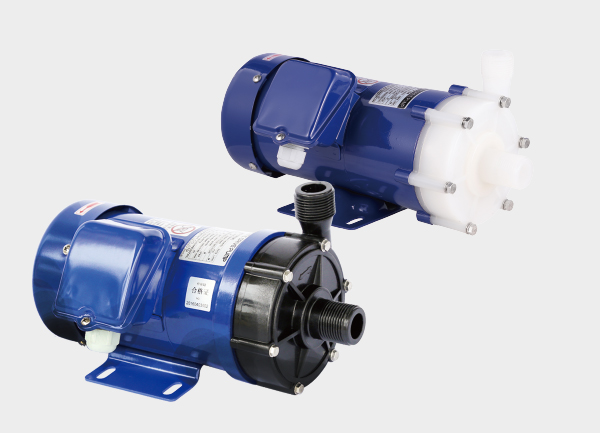When selecting or repairing a magnetic drive pump (magnetic pump), the bearing material (also known as the sleeve or slide bearing) plays a crucial role in ensuring stable operation and long service life. The right bearing material directly affects wear resistance, corrosion performance, and even the risk of pump failure.
This article compares the most commonly used bearing materials for magnetic pumps—covering their characteristics, advantages, disadvantages, and suitable working conditions.
Common Bearing Materials and Their Characteristics
Below are the typical materials used in magnetic pump bearings, summarized from multiple industrial sources and manufacturers’ recommendations.
| Material | Description | Advantages | Disadvantages | Typical Applications |
|---|---|---|---|---|
| High-Density Carbon / Hard Carbon | Graphite-based self-lubricating material often used in magnetic pumps. | Low friction, good corrosion resistance, self-lubricating. | Moderate load and wear resistance; easily damaged by dry running or solid particles. | Corrosive liquids, moderate temperature, clean fluids, medium speed applications. |
| High-Purity Alumina Ceramic (Al₂O₃) | A dense ceramic material widely used for sliding bearings. | Excellent hardness and corrosion resistance; long service life under clean conditions. | Brittle; can crack under impact, vibration, or dry running; relatively expensive. | Highly corrosive or high-purity liquids, clean environments, moderate speed/temperature. |
| Silicon Carbide (SiC) | One of the most common bearing materials in magnetic drive pumps. | Extremely hard, excellent wear and corrosion resistance, suitable for high temperature and long-term use. | Brittle and costly; sensitive to solid particles and poor lubrication. | High-temperature, high-speed, or strong chemical corrosion environments. |
| PTFE / Fluoroplastic Bearings | Used for low-load, low-speed, or highly aggressive chemical media. | Exceptional chemical inertness, self-lubricating, very low friction. | Limited load capacity, moderate wear resistance, poor performance at high temperatures. | Strongly corrosive fluids, sticky or contaminated liquids, risk of dry running. |
| Metallic Bearings (Stainless Steel / Alloys) | Rare in modern magnetic pumps but still found in some low-end models. | Low cost, easy to manufacture, strong impact resistance. | Poor corrosion and wear resistance; short lifespan under chemical or abrasive conditions. | Non-corrosive or mild liquids, low-cost applications. |
Performance Comparison Table
| Property | High-Density Carbon | Alumina Ceramic | Silicon Carbide | PTFE / Fluoroplastic | Metal Bearings |
|---|---|---|---|---|---|
| Corrosion Resistance | Good | Excellent | Excellent | Outstanding | Poor |
| Wear Resistance | Moderate | Good | Excellent | Low | Low |
| Temperature / Speed Resistance | Medium | Good | Excellent | Low | Limited |
| Impact / Particle Tolerance | Good | Poor (brittle) | Poor (brittle) | Poor | Good |
| Cost | Low | High | Highest | Medium | Low |
| Dry Running Tolerance | Low | Low | Low | Moderate (self-lubricating) | Moderate |
Material Selection Recommendations
When choosing bearing materials for magnetic pumps, consider the chemical nature of the liquid, temperature, solid content, speed/load, and budget.
For strong acids, alkalis, chlorides, or fluorine-based chemicals:
→ Use Silicon Carbide (SiC) or High-Purity Alumina Ceramic. These offer the best combination of corrosion and wear resistance.For moderately corrosive, particle-free, and budget-sensitive applications:
→ High-Density Carbon is a cost-effective, reliable choice.For highly viscous, contaminated, or dry-running environments:
→ PTFE / Fluoroplastic bearings are ideal due to their chemical inertness and low friction, but ensure the load is not excessive.For low-corrosion liquids and general-duty applications:
→ Metallic bearings can work but are less common in modern magnetic pumps due to corrosion risks.For conditions with high vibration or potential impact:
→ Avoid brittle materials like standard ceramics; instead, use fiber-reinforced SiC composites or protected bearing designs that improve impact resistance.
Key Considerations and Operating Risks
Magnetic pump bearings rely on the pumped liquid for lubrication.
Gas bubbles, solids, or cavitation can destroy the lubrication film and damage the bearing surface.Ceramic and SiC bearings, while durable, are brittle—excessive vibration, shaft misalignment, or shock loading can cause cracking.
Operating conditions such as temperature, viscosity, and gas content directly affect the lubrication film and bearing life.
Higher-grade materials have higher upfront costs but significantly reduce maintenance frequency and downtime.
Bearing selection must also consider shaft rigidity, pump design, and fluid flow path to achieve the best results.
Conclusion
Choosing the right bearing material for a magnetic drive pump is essential for achieving optimal performance, efficiency, and longevity.
✅ For most chemical and industrial applications, Silicon Carbide (SiC) and High-Purity Alumina Ceramic remain the top choices due to their unmatched hardness and corrosion resistance.
✅ Carbon bearings offer a solid balance of performance and cost, especially in moderate-duty environments.
✅ For special chemical or dry-run-prone applications, PTFE bearings provide a unique combination of self-lubrication and chemical inertness.
By carefully matching the bearing material to your fluid properties and operating conditions, you can ensure your magnetic pump runs reliably, efficiently, and leak-free for years.








